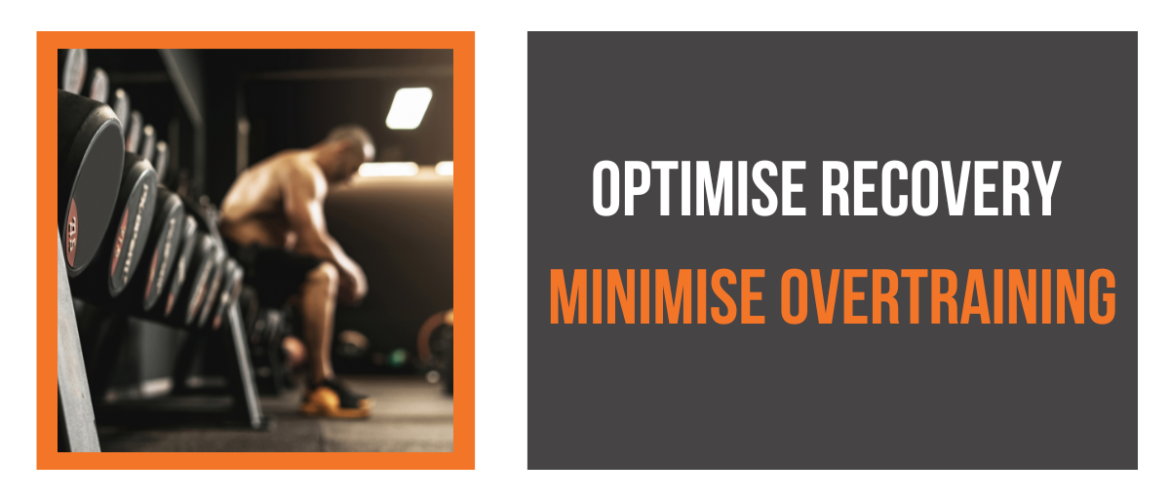GET IN TOUCH TODAY!
"*" indicates required fields

With the growing popularity of fitness and athleticism, the drive to push limits and achieve results quickly has become more common. However, this drive can sometimes lead to overtraining—a condition that can hinder progress and result in significant health issues. In this article, we’ll delve into the signs and symptoms of overtraining and offer strategies to avoid it, ensuring you stay on course with your fitness goals.
Overtraining occurs when the intensity and volume of exercise exceed the body’s ability to recover. While regular exercise is crucial for improving fitness, overdoing it can have the opposite effect, leading to fatigue, decreased performance, and even injury. It’s important to balance training and rest for long-term success.
Persistent fatigue is one of the most noticeable symptoms of overtraining. If you’re constantly tired, even after a full night’s sleep or a rest day, it might signal that your body needs a break. Chronic fatigue is a sign that your body hasn’t had sufficient time to recover from continuous physical stress.
A decline in performance is another red flag. You might notice that your strength, endurance, or speed levels aren’t improving—or worse, are declining. This occurs because your muscles and energy systems haven’t had adequate time to recover and adapt.
An increased resting heart rate can also be a sign of overtraining. If your resting heart rate is higher than usual, it indicates that your body is under stress and working harder than normal, even when you’re not exercising. Monitoring your resting heart rate can help you keep track of your training load and recovery status.
Overtraining doesn’t just affect your body—it can also impact your mental health. Experiencing mood swings, irritability, anxiety, or depression might be signs that you’re overtraining. The physical stress of overtraining can alter hormone levels and neurotransmitters, negatively affecting your mood and mental well-being.
Overtraining can also result in sleep disturbances, such as insomnia or poor-quality sleep. Elevated levels of stress hormones like cortisol can interfere with sleep patterns despite feeling tired.
Another symptom of overtraining is increased susceptibility to illness. You’ll likely catch colds or other infections when your immune system is compromised due to overtraining. If you get sick more often than usual, it could indicate your body is overworked.
Lastly, prolonged muscle soreness is an indicator of overtraining. While some muscle soreness after a workout is normal, extended soreness might mean that your muscles aren’t getting the needed recovery time.
Preventing overtraining is crucial to maintaining long-term health and achieving your fitness goals. Following a structured training plan is essential. A well-designed plan balancing intensity, volume, and rest can help avoid overtraining. Gradually increase your training load and allow ample time for recovery.
Listening to your body is also vital. Pay close attention to the signals it sends. If you feel fatigued or notice any signs of overtraining, it’s important to step back and give yourself time to rest. Ignoring these signals can lead to severe injuries and setbacks.
Prioritising rest and recovery is just as important as training itself. Incorporate rest days into your schedule to allow your body time to recover and rebuild. Additionally, to promote recovery, consider adding active recovery activities, such as yoga, stretching, or light walking.
Getting enough sleep is another key factor. Adequate sleep is crucial for recovery and overall well-being. Aim for 7-9 hours of quality sleep each night to ensure your body has enough time to recover from physical stress.
Proper nutrition plays a critical role in recovery as well. Eating a balanced diet that includes carbohydrates, proteins, and healthy fats can fuel your workouts and aid in recovery. Staying hydrated is also essential for optimal performance and recovery.
Including cross-training in your routine can help prevent overuse injuries and provide your body with a more balanced workout. Cross-training reduces the repetitive strain on the same muscle groups, lowering the risk of overtraining.
Overtraining can have serious consequences for both your physical and mental health. By recognising the signs and symptoms of overtraining and implementing strategies to prevent it, you can maintain a healthy and sustainable fitness routine. Remember, fitness is a marathon, not a sprint. Prioritising rest and recovery is essential for achieving long-term success.
If you’re ready to take the next step in your fitness career and learn how to plan and deliver safe, effective training programmes, we’d love to hear from you! Get in touch using the form below to find out how you can start training clients with confidence and expertise. Let’s turn your passion for fitness into a rewarding career!
"*" indicates required fields